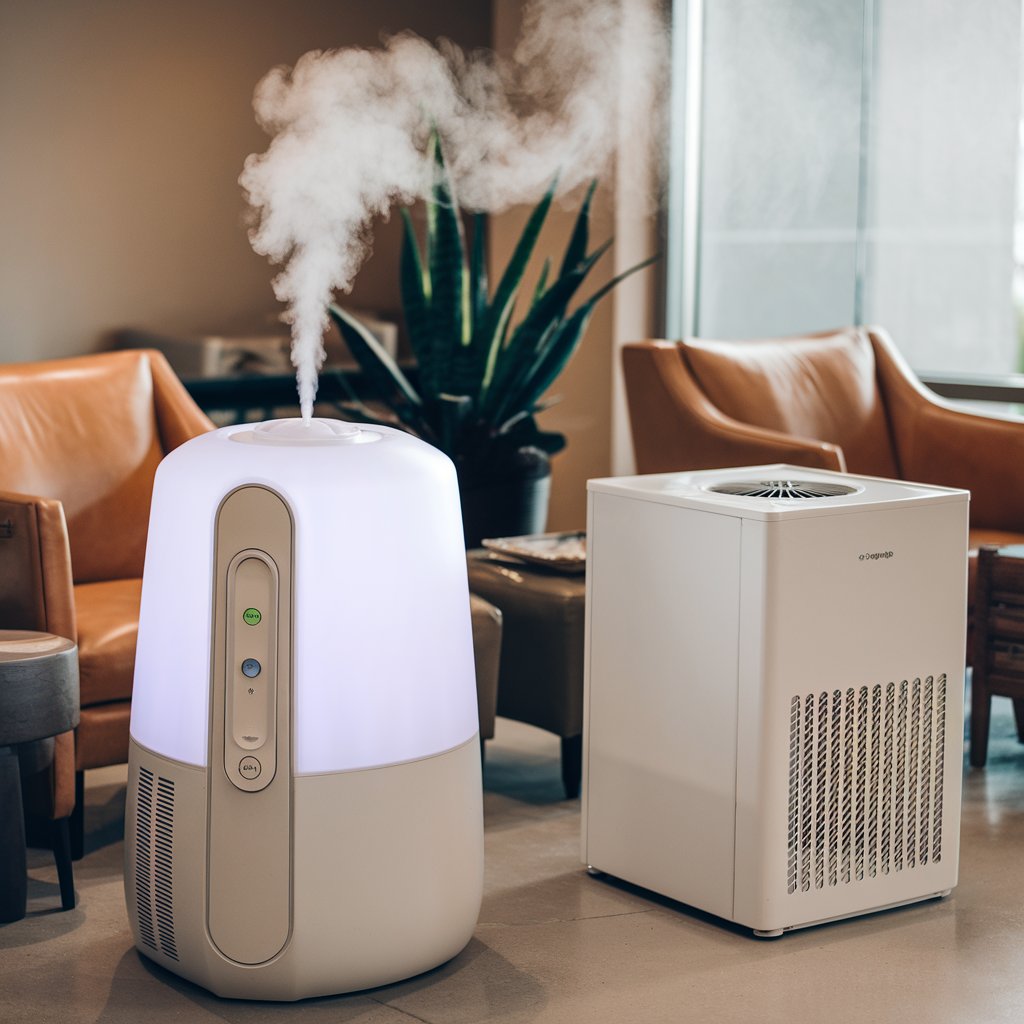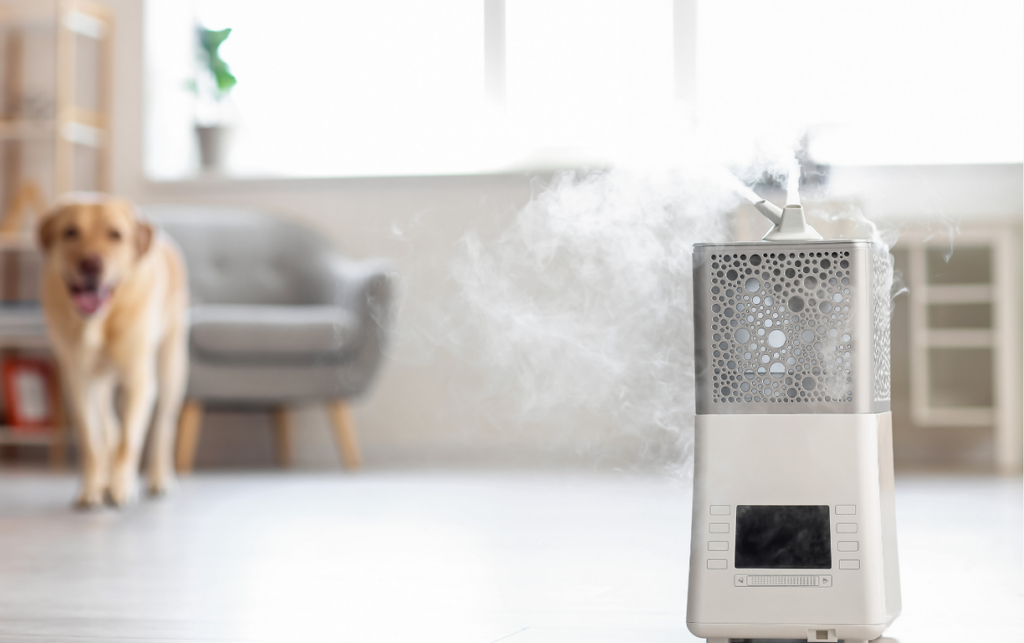Physical Address
304 North Cardinal St.
Dorchester Center, MA 02124
Physical Address
304 North Cardinal St.
Dorchester Center, MA 02124

When it comes to indoor comfort, humidity plays a crucial role. Too much moisture can lead to mold and mildew, while too little can cause dry skin and respiratory issues. I’ve often found myself pondering whether to invest in a humidifier or a dehumidifier, especially during seasonal changes.
Understanding your home’s humidity levels is key to making the right choice. A humidifier can add moisture
When it comes to indoor comfort, humidity plays a crucial role. Too much moisture can lead to mold and mildew, while too little can cause dry skin and respiratory issues. I’ve often found myself pondering whether to invest in a humidifier or a dehumidifier, especially during seasonal changes.
Understanding your home’s humidity levels is key to making the right choice. A humidifier can add moisture to dry air, making it more comfortable during winter months. On the flip side, a dehumidifier can help combat excess moisture, particularly in damp areas like basements. Let’s explore the benefits of each option to help you decide what’s best for your space.

Humidity levels directly affect indoor comfort and health. Knowing how each device functions helps me determine which one suits my needs.
A humidifier adds moisture to the air, helping to increase humidity levels in dry environments. It’s effective in combating dry skin, allergies, and respiratory issues. Different types of humidifiers exist, including:
These devices are most beneficial in winter months or arid climates, where indoor heating reduces humidity. Maintaining optimal humidity levels between 30-50% supports comfort and overall health.
A dehumidifier reduces moisture in the air, thereby lowering humidity levels in damp spaces. It’s crucial in preventing mold, mildew, and excessive moisture-related issues. Types of dehumidifiers include:
Dehumidifiers prove essential in basements, bathrooms, or areas prone to high humidity. Keeping humidity levels below 50% helps prevent mold growth, protect belongings, and enhance indoor air quality.
Humidifiers play a crucial role in maintaining comfortable indoor air quality. They add necessary moisture to the air, leading to various health and environmental benefits.
Humidifiers provide significant health advantages. Increased humidity reduces dry skin and irritation. It hydrates the airways, easing symptoms of allergies and asthma. Humidifiers help during cold and flu seasons by soothing irritated sinuses and throat. They can also alleviate static electricity discomfort and prevent the spread of airborne viruses.
Humidifiers enhance overall comfort in living spaces. They maintain optimal humidity levels, which can reduce the need for excessive heating, saving on energy costs. Balanced humidity promotes healthier indoor plants and minimizes household issues like creaky floors and indoor hardwood damage. A humidified environment fosters improved sleep quality, making bedrooms more inviting.
Dehumidifiers play a vital role in maintaining optimal indoor air quality. They specifically address issues related to excess moisture, providing various advantages for health and comfort.
Dehumidifiers significantly reduce humidity levels, which helps prevent the growth of mold and mildew. Mold exposure can lead to serious health issues, including respiratory problems and allergies. By maintaining humidity below 50%, dehumidifiers minimize these risks. Additionally, lower humidity levels help alleviate symptoms of asthma and allergic reactions triggered by dust mites and mold spores. Using a dehumidifier can lead to healthier living environments, particularly for individuals with pre-existing conditions.
Dehumidifiers enhance indoor comfort by creating a dryer atmosphere, which feels more pleasant, especially in humid climates. They help prevent the musty odors associated with dampness, improving overall air quality. Dehumidifiers also protect personal belongings like furniture, clothing, and electronics from moisture damage. Furthermore, by reducing excess moisture, they can lower the energy costs associated with cooling systems, making homes more energy-efficient. A comfortable environment promotes better sleep and overall well-being, making dehumidifiers a key component in achieving a pleasant living space.
Choosing between a humidifier and a dehumidifier involves several important factors that impact your home’s comfort and health. Here are the key considerations.
Consider the local climate when deciding. In dry climates, a humidifier adds necessary moisture, preventing dry skin and respiratory issues. In contrast, humid environments benefit from a dehumidifier to eliminate excess moisture that causes mold and mildew. Analyze seasonal changes; winter may require a humidifier while summer often calls for a dehumidifier. Pay attention to your surrounding environment as well; if your home is near bodies of water or exposed to humidity, a dehumidifier becomes essential.
Evaluate the size of the room to determine the appropriate device. Large rooms may require a more powerful humidifier or dehumidifier to effectively manage humidity levels. Measure current humidity levels with a hygrometer, aiming for 30-50% humidity for optimal comfort. If humidity levels exceed this range consistently, installing a dehumidifier helps control moisture. For dry areas, using a humidifier promotes a healthier indoor atmosphere. Always match device capabilities with room dimensions to ensure efficiency.
Selecting the right device for managing humidity is crucial for maintaining comfort and health in my home. The choice between a humidifier and a dehumidifier depends on specific environmental factors.
Choosing a humidifier is ideal during dry winter months or in arid climates. I pick a humidifier when I notice symptoms like dry skin, static electricity buildup, or respiratory irritation. Humidifiers benefit indoor plants and enhance sleep quality by maintaining optimal moisture levels. It’s essential to check my hygrometer reading; if it consistently falls below 30%, a humidifier becomes necessary to raise humidity levels and increase overall comfort in my living space.
Choosing a dehumidifier is crucial when facing excessive moisture, especially in basements or damp areas. I opt for a dehumidifier if I experience musty odors, mold growth, or allergy flare-ups linked to high humidity. Maintaining humidity levels below 50% helps protect belongings from moisture damage and reduces health risks related to mold and mildew. Using a hygrometer to monitor conditions, activating a dehumidifier becomes essential in humid environments or after heavy rainfall to ensure a comfortable indoor atmosphere.
Choosing between a humidifier and a dehumidifier ultimately depends on your specific needs and the humidity levels in your home. If you’re dealing with dry air that causes discomfort like dry skin or respiratory issues a humidifier can be a game changer.
On the flip side if excess moisture is a problem leading to mold or musty odors a dehumidifier is the way to go. Regularly monitoring your indoor humidity will help you determine which device is best for your situation. By making an informed choice you can create a more comfortable and healthier living environment.